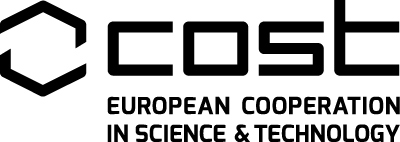Home > COST Action TU0903: Methods and Tools for Supporting the Use, Calibration and Validation of Traffic Simulation Models
Supervisors:
,

Academic degree and current position in TSI: professor, leading researcher of the Engineering Faculty, Director of MSc Program “Transport and Logistics”
Previous experience: more than 10 years was Vice-rector for Research and Development, Transport and Telecommunication Institute (TSI), founder of the Laboratory of Applied Systems and chair of Mathematical Methods and Modelling Department in TSI
Membership: From 01.2017 member of ECTRI Board and from 2019 – vice-president of ECTRI; an external scientific expert in Association of Paneuropa Coach Terminals from 2009; has been chair or member of the organizing and the programme committees of the International Conference on Applied Statistics (6 events), Transportation Research (15 events), Complex Systems (4 events), etc. and reviewer in transportation journals and conference proceedings. Member of Editorial Board of Journals: Transport (WoS, SCOPUS); Maintenance and Reliability (SCOPUS), Transport and Telecommunication (WoS, SCOPUS), etc. Guest redactor of Volumes of Lecture Notes in Networks and Systems and Lecture Notes in Intelligent Transportation and Infrastructure in Springer; Procedia Engineering published by Elsevier etc.
Academic experience: Author more than 170 publications, incl. 9 books and textbooks, chapters in the books “From Transit Systems to Models: Purpose of Modelling” in book: “Modelling Public Transport Passenger Flows in the Era of Intelligent Transport Systems” (Springer Verlag, 2016), “3D City Models and urban information: Current issues and perspectives” (edpsciences, 2014), papers in International Journal of Transport, Transport and Telecommunication, Advances in Intelligent Systems and Computing, etc. Guest redactor of Volumes of Lecture Notes in Networks and Systems and Lecture Notes in Intelligent Transportation and Infrastructure in Springer; Procedia Engineering published by Elsevier etc. An Expert in Transport and Logistics (2008-2021) and Civil Engineering (from 2021) at the Latvian Council for Science; member of the PhD promotion committee
Teaching at post- and graduate levels: Data Analysis (PhD in Business Management, RSEBAA-BA); Multivariate Statistical Analysis, Transport Modelling, Scientific Seminar (Dr. Ing. in Telematics and Logistics, TSI); Data Mining (MSc in Computers Science, MIS, TSI); Research Seminar; Methods of Data Analysis and Business Forecasting (MSc in Transport and Logistics, TSI); etc.
Participation in projects: as leading researcher has participated in more than 20 European and Latvian research projects and more than 14 national transportation studies, and was scientific coordinator in 8 of them. Is/was national representative and management committee member of COST Actions CA16222 (WISE-ACT), TU1306 (CYBERPARKS), TU1004, TU0903, TU0804 and TU0801. Has great experience in coordinating different kind of projects in frame of Horizon 2020, FP, INTERREG, BSR programmes, she was coordinator of Horizon 2020 project “Enhancing excellence and innovation capacity in sustainable transport interchanges” (ALLIANCE)
Research interest: Data analysis, data mining, statistical analysis, mathematical modelling and simulation with application in different fields (transportation sphere, business, economics, networks, logistics and others)
Supervised Doctoral, Master and Bachelor Theses: Promoted 6 Doctoral, more than 90 Master theses and 70 Bachelor theses an official reviewer of 7 PhD theses
Awards: (2019) by Ministry of Education and Science; (2017, 2010, 2008) Latvian Education Funds; (2011, 2010, 2008) Riga Municipality

The main objective of the Action is to develop, implement and promote the use of methods and procedures for supporting the use of traffic simulation models, especially on the topics of model calibration and validation.
To this date, the bulk of resources and effort in the field of traffic simulation have focused on “model development”, leading to many simulation models being available on the market.
These models are extensively used in applications that have great potential impact on the safety, capacity and environmental efficiency of the road system. However the fidelity of results and conclusions drawn from a simulation study, as well as the range of possible applications the tools can reliably be used for, are questionable: the same simulation study carried out by different people, even when using the same tool, is likely to give different results.
Thus, the trustworthiness of the results almost entirely depends on the ability of the model users and on their intuition.
Moreover, the increasing complexity of models makes appropriate and correct use a difficult task even for experts, requiring very specific calibration and validation methodologies.
For these reasons the main objective of this Action is to develop, implement and promote methodologies and procedures to support the use of traffic simulation, especially on the topics of calibration and validation. To this aim the sharing and exchanging of available traffic datasets will also be a key task of the Action.